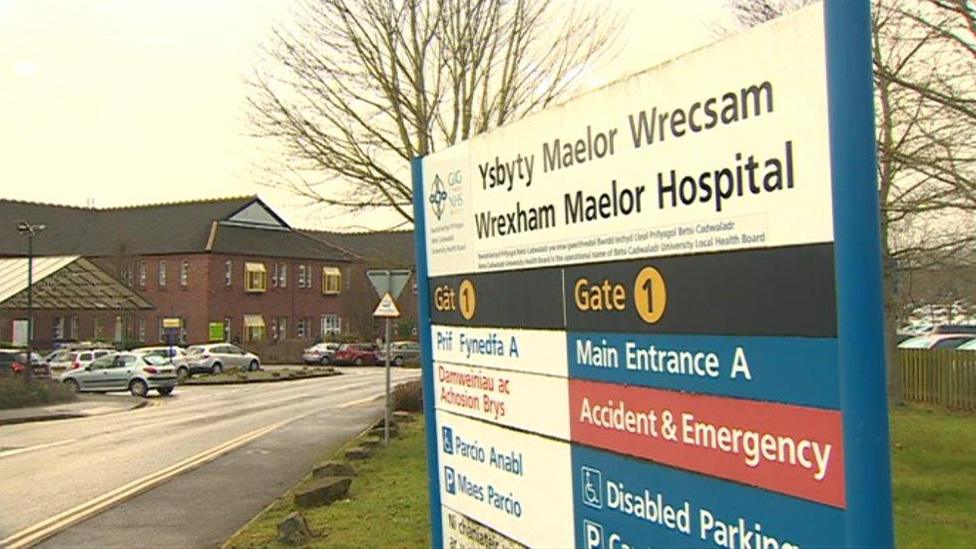Wrexham Maelor: 'Worst on record' A&E shows improvement
- Published

In August Wrexham Maelor had the worst A&E performance of any hospital in Wales on record
There has been slight improvement in Wales' worst performing A&E department, according to the latest NHS figures.
In August 49.7% of patients spent less than 4 hours at Wrexham Maelor - the worst performance of any accident and emergency unit in Wales on record.
However in September this recovered slightly to 50.9% of patients.
The Welsh Government said the latest figures showed they were making progress in cutting waiting times for scheduled care.
The statistics also show an improvement at Wrexham Maelor's neighbouring Glan Clwyd Hospital's emergency department, with the proportion spending less than 4 hours in the unit rising from 52.9% to 56.0%.
Last month, the Welsh Government said it was offering extra funding support to both hospitals to try to turn performance around in advance of increased winter pressures.
However it is clear that both A&E departments continue to struggle compared with others in Wales.
National A&E performance
The best performing A&E departments in Wales deal with almost 90% of patients within four hours.
However this is still below the national target that 95% of A&E patients should be admitted, transferred or discharged within four hours.
On average across all major and minor urgent care units in Wales, 80.3% of patients spent less than four hours there during September.
This was slightly better than the performance in August of 80.0%, but worse than the figure of 84.5% achieved in September last year, even though the numbers attending A&E were slightly lower compared to the same time last year.
Elsewhere...
Other NHS statistics released today show:
The ambulance service continues to exceed its target on response times to immediately life-threatening "red" calls - although the Welsh Government is due to publish a review shortly on whether more categories should be included in the red category.
Waiting times for planned treatments lengthened between July and August however performance has remained fairly stable since early 2016.
There has been some improvement on cancer waiting times.
What does the Welsh Government say?
A spokesman said the latest figures showed they were continuing to make progress in cutting waiting times for scheduled care.
"The number of people waiting over 36 weeks for referral to treatment in August was 30% lower than the previous year, with all health boards in a better position," he said.
They said 87.6% of patients waited less than 26 weeks to be referred for treatment, 2.4 percentage points higher than last year.
He added: "We have invested £30m to cut waiting times further and expect to see significant improvements in performance by health boards.
"The ambulance service has now surpassed its target for 36 consecutive months, with patients who are immediately life threatened receiving a response in an average of just under five minutes."
- Published17 October 2018

- Published10 April 2018

- Published20 September 2018
